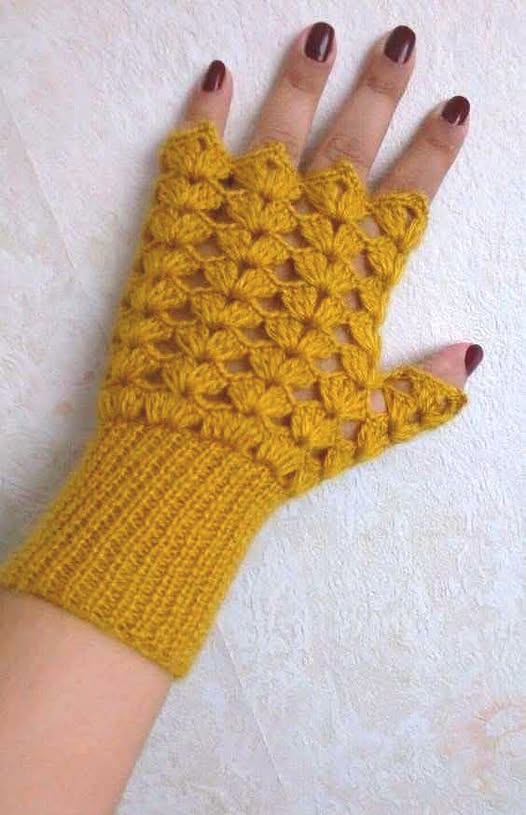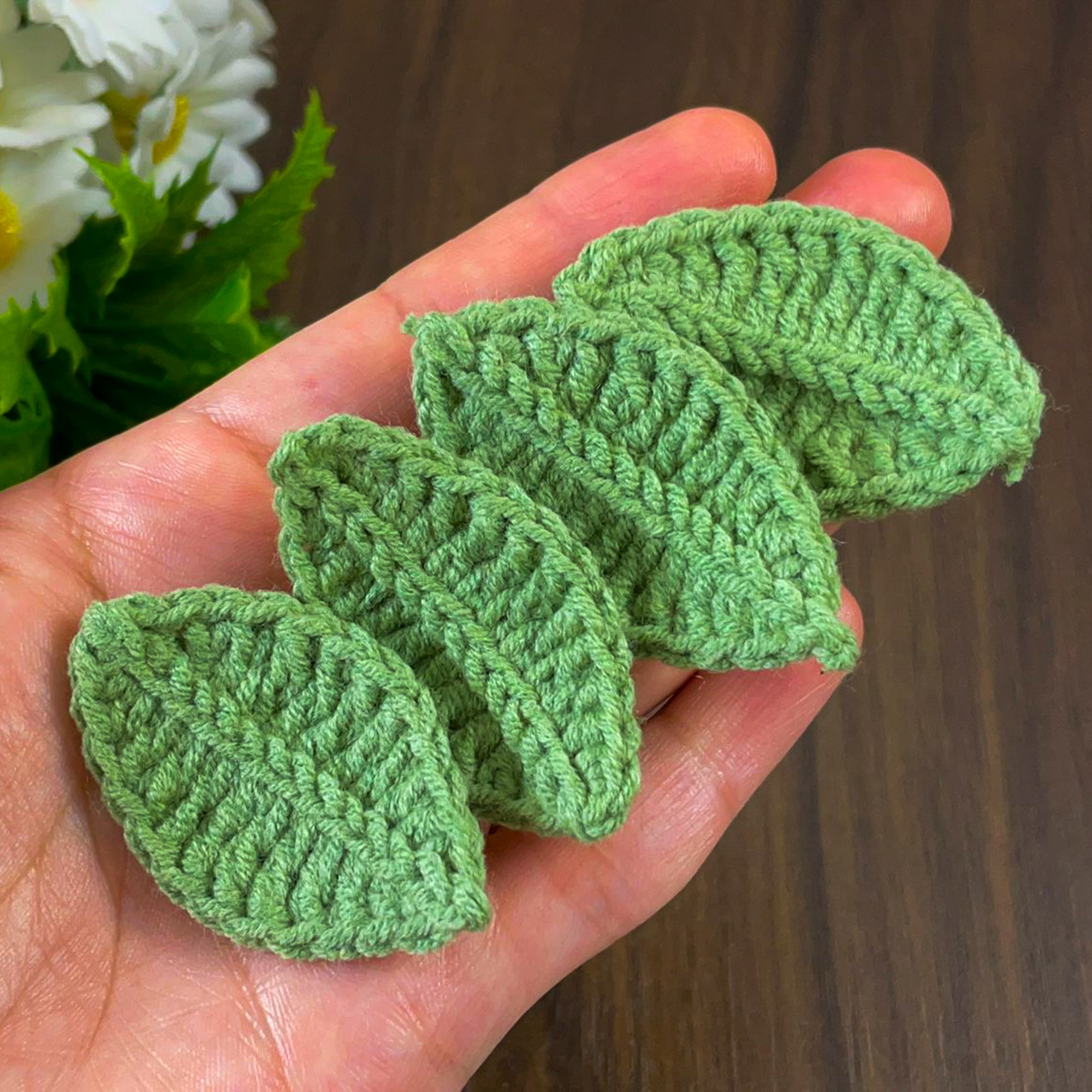
If you’re looking to bring a natural and detailed touch to your crochet projects, the Realistic Crochet Leaf Pattern is a must-try.
Whether you’re making a floral arrangement, embellishing a scarf, or crafting botanical décor, realistic crochet leaves add a touch of authenticity and texture that basic designs simply can’t match.
These intricate leaves are not only beautiful, but they also provide an excellent opportunity to explore shaping techniques, surface texture, and color variation.

From serrated edges to raised veins, a realistic crochet leaf pattern mimics nature’s beauty in a creative and relaxing way.
In this guide, we’ll take you through everything you need to know to get started: materials, stitch tips, creative uses, and even how to design your own unique leaf patterns.
Whether you’re a beginner ready to branch out or a seasoned crafter looking for a fresh idea, this article will spark your creativity.
Using a Realistic Crochet Leaf Pattern instead of a simple one elevates your entire project. It shows attention to detail and a love for craftsmanship. Realistic leaves feature carefully structured shapes that mirror nature, often incorporating texture, shading, and movement into their design.
You can use these leaves to complement your crochet flowers, creating lifelike bouquets that last forever. They’re also stunning when used in wall hangings or added to wearables like hats and shawls.
Another reason to choose realism? Color blending. Many leaf patterns include multiple shades of green or even autumn colors like burnt orange and burgundy. This shading mimics the natural variations seen in real foliage.
Learning how to crochet realistic leaves also introduces new techniques to your skillset. You’ll work with shaping, picots, slip stitches, and sometimes even surface crochet. It’s a great way to challenge yourself while producing something truly beautiful.
And don’t forget: realistic leaves make fantastic seasonal decorations. Whether it’s spring, summer, or fall, there’s a leaf pattern to match the mood and palette of the season.
Choosing the right materials is crucial for making your Realistic Crochet Leaf Pattern look as natural as possible. While the stitches and shape are important, the texture and weight of the yarn also play a big role.
Cotton yarn is the top choice for crochet leaves because of its smooth finish and excellent stitch definition. You can clearly see the veins, edges, and textures. Mercerized cotton adds a subtle shine that enhances realism.
For tiny, delicate leaves, try fingering or sport weight yarn. If you want to make large leaves for a statement project, go with worsted or even bulky weight. Keep in mind that the heavier the yarn, the less flexible your leaf will be.
Use a smaller hook than recommended for your yarn weight. This helps the leaf hold its shape and provides tighter stitches for better structure.
Green is the obvious choice, but don’t be afraid to experiment. Use variegated yarn or mix shades manually for an ombré look. Fall leaves call for warm hues—reds, oranges, golds, and browns.
Having the right materials makes all the difference in achieving a beautiful, lifelike crochet leaf.
Creating a Realistic Crochet Leaf Pattern involves a few key techniques that mimic the organic shapes found in nature. Here are some tips and steps to help you achieve that natural look:
Many leaf patterns begin with a central chain that represents the main vein. From there, you’ll work stitches up one side and then back down the other.
Mix single crochet (sc), half double crochet (hdc), double crochet (dc), and treble crochet (tr) to give your leaf varying height and curvature. Use the taller stitches in the middle of each side and smaller ones toward the tip and base.
To create a curved edge, strategically increase and decrease stitches along each row. Use slip stitches to soften the shape or add indentations.
Once the leaf is complete, you can use surface slip stitches to embroider veins or create ridges. This gives a raised look that adds dimension and realism.
Use a steam block or light wet block to shape the leaf. Pin it to a blocking board in the desired shape and let it dry completely. If you want the leaf to stay stiff, spray with starch or fabric stiffener.
Insert floral wire along the vein or edge of the leaf before finishing. This lets you pose the leaf naturally in arrangements or accessories.
With practice, these steps become second nature and give your realistic crochet leaves a botanical finish.
Once you’ve mastered the Realistic Crochet Leaf Pattern, the creative possibilities are endless. These detailed pieces can be used in both functional and decorative ways across your projects.
Pair your crochet leaves with flowers to build beautiful arrangements. Place them in a vase, wreath, or bouquet for a gift that never wilts.
Add leaves to bags, shawls, beanies, or even gloves. They give a handcrafted touch and seasonal flair.
Use crochet leaves in table runners, garlands, or wall art. They’re ideal for fall themes, garden-inspired décor, or even fairy-tale nurseries.
Make lightweight earrings, brooches, or pins with smaller leaves. Add beads or sequins for a little sparkle.
Attach mini crochet leaves to the covers of journals or in handmade cards for a textural element.
If you’re teaching children about nature, make leaves in different shapes to represent various tree species. A fun way to mix science and art!
The Realistic Crochet Leaf Pattern isn’t just a craft; it’s a gateway to personalized, nature-inspired creativity.
What makes a crochet leaf “realistic”?
A realistic leaf features details like curves, serrated edges, veins, and lifelike shapes. It mimics the natural look of actual leaves rather than using a flat or abstract form.
Can beginners make a realistic crochet leaf?
Yes! Many patterns are beginner-friendly. Start with simple leaf shapes and gradually explore more complex textures and stitches as your skills improve.
Do I need special tools to make these leaves?
Most patterns require just basic crochet tools: hook, yarn, and scissors. However, using blocking tools, fabric stiffener, or floral wire can improve the final result.
Which yarn is best for realistic leaves?
Cotton yarn offers great stitch definition and stiffness, making it the best choice for realistic leaves. Variegated or gradient yarns also help add depth.
Can I use these leaves outside or on clothing?
Yes! Use appropriate yarns and finishing techniques. For wearables, consider sewing them securely and reinforcing them with backing if necessary.
How can I create different leaf types (like maple or oak)?
Follow specific patterns designed to replicate those leaf shapes. You can also modify basic patterns by changing stitch heights or edge techniques.
The Realistic Crochet Leaf Pattern opens the door to a world of lifelike, creative expression. Whether you’re dressing up a bouquet, personalizing an accessory, or decorating your home, realistic leaves bring depth, charm, and artistry to your projects. They’re versatile, fun to make, and perfect for exploring new techniques in crochet.
Now it’s your turn—have you tried making realistic leaves before? What colors or yarns did you enjoy most? Leave a comment below with your experience, suggestions, or even your favorite patterns. Your ideas inspire others in our crochet community!
